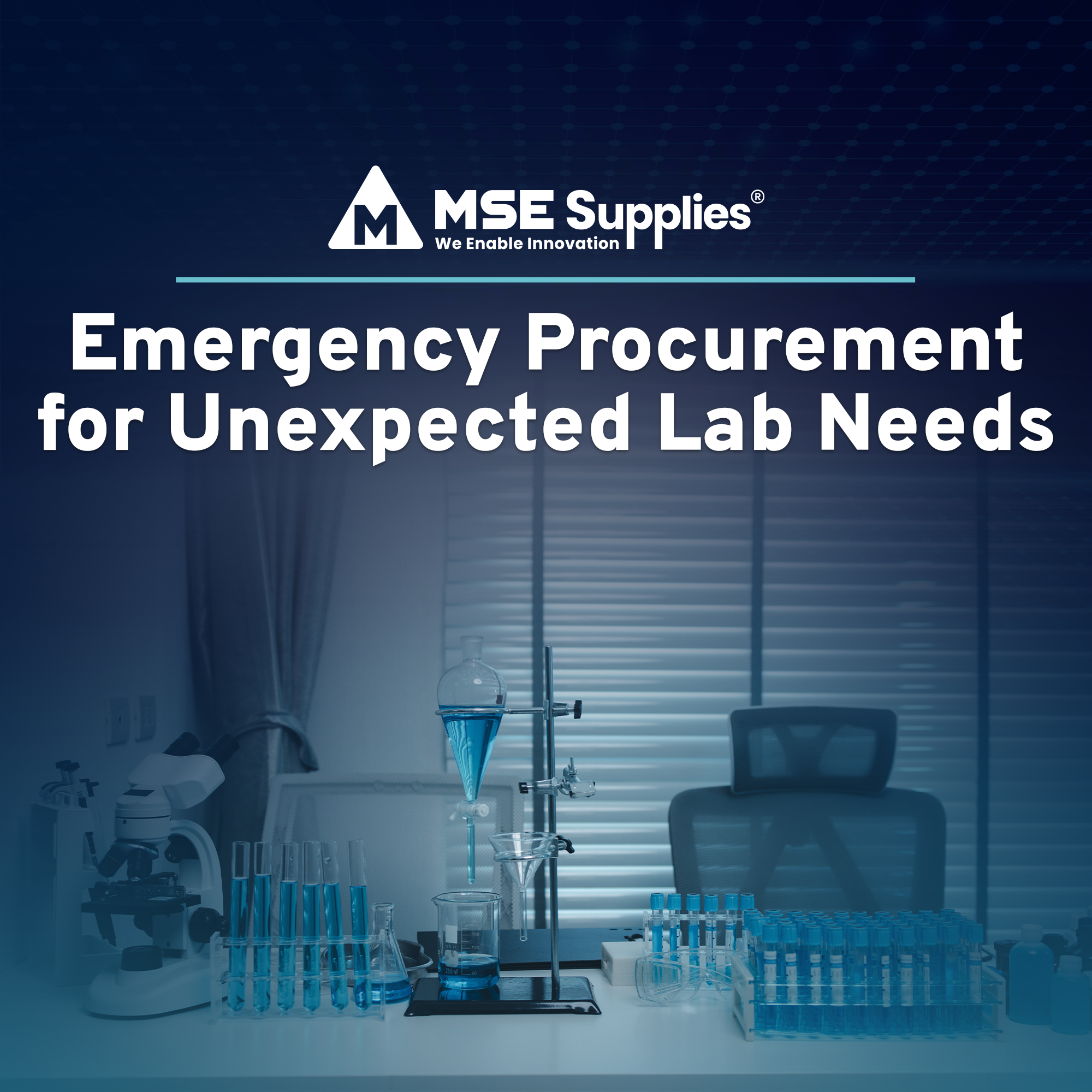NSF's $25 Million New Funding to Accelerate Discovery in Materials Science
Posted by MSE Supplies Admin on
|
|
|
The surface of bismuth selenide film shows the triangular layer structure that is characteristic of 2-D chalcogenide materials. Credit: Joan Redwing, Department of Materials Science and Engineering, Penn State University
A new Materials Innovation Platforms (MIPs) program that aims to significantly accelerate materials research and development has made its first awards, to Penn State University and Cornell University. The institutions will serve as "platforms" to develop new bulk and thin film crystalline hard materials through state-of-the-art instrumentation. They will foster an environment that combines multidisciplinary expertise with the best tools available, providing access to the instrumentation, data and new materials created. The Cornell University award is a multi-institution effort in collaboration with Johns Hopkins University, Clark Atlanta University and Princeton University. The National Science Foundation (NSF) will provide up to $25 million over the next five years to support the platforms, with each eligible for a one-time, five-year renewal. The platforms, which add to NSF's portfolio of mid-scale infrastructure and instrumentation, will advance a focused research area of national importance and expand access beyond traditional user facilities. "We see the platforms as pushing the frontiers in materials research," said Fleming Crim, NSF assistant director for mathematical and physical sciences (MPS). "In its first call for proposals, NSF is focusing on crystal growth because the U.S. has fallen behind in this area of science after having been a global leader in material synthesis, which is essential for advancing basic materials research and will add to the important investment the foundation is making in mid-scale instrumentation."  These are examples of new interface materials that can be created by users of the Platform for the Accelerated Realization, Analysis, and Discovery of Interface Materials (PARADIM). An image of cylindrical single crystals of strontium holmium oxide and titanium oxides. The crystals are several millimeters in diameter and several centimeters long. Credit: PARADIM, Cornell UniversityThe MPS mid-scale research infrastructure program, begun over the last few years to meet critical research needs, has received strong support from the community. "MIPs will serve as focal points that promote cross-fertilization of ideas between internal and external researchers, thanks to their unique convergence of expertise," said Linda Sapochak, acting director for NSF's Materials Research Division. "To accelerate research outcomes, the platforms will focus on a targeted materials grand challenge and/or technological outcome that addresses a national priority. Along with the discovery of new materials, research conducted at a MIP will lead to the understanding of new materials phenomena." The platforms program was inspired by the paradigm the administration set forth in its Materials Genome Initiative. Launched in 2011, the initiative seeks to "discover, manufacture and deploy advanced materials in half the time and at a fraction of the cost." The MIPs program will enable researchers using the platforms to develop new materials, new techniques and the next generation of instrumentation that will lead to understanding and discovering all kinds of new phenomena. Additionally, the processes used by these platforms will move between theory, measurement and actual fabrication with the aim of accelerating discovery of new materials in half the time.
A schematic illustration of the use of optical characterization to measure material properties during the deposition of triangular 2-D islands on a substrate surface from the reaction of source molecules. Researchers with the Penn State Materials Innovation Platform will use laser light to monitor vibrational and optical properties of the 2-D islands as they grow in size, providing information on the crystal structure and number of layers in the film. Credit: Mauricio Terrones, Department of Physics, Penn State UniversityThe science will accelerate the development of technologies in a wide range of areas, such as microelectronics, fuel and solar cells and new biomaterials, generating economic gains for the nation. The effort is data-intensive and researchers not directly involved with the platform will also have access to, and benefit from, the generated data. The awardees will act as "nexus of activity" for a focused research theme, where platforms are equipped with user facilities. Researchers from across the nation who also engage in this area of research will be able to use these resources to accelerate their own work. Access to the platform is free to academic users and includes not just instrumentation, but also expertise in synthesis, characterization, and theory/modeling/simulation. Additionally, the platforms will enable researchers to work in new ways, fostering new approaches to multidisciplinary education and training. "Without question, one of the most exciting aspects to these awards will be to see just how quickly these platforms can accelerate the pace of materials development," said Sean L. Jones, NSF materials research program director. "The awards are fairly complementary to one another and accelerate research in two distinct material systems likely to have a significant impact on technology as they transform the field at the most fundamental level." Cornell University's focus on 2-D materials with PARADIM Cornell's Platform for the Accelerated Realization, Analysis, and Discovery of Interface Materials (PARADIM) will focus primarily on oxide and oxide-based two-dimensional films on new substrates—physical materials meant for next generation electronics. Researchers using the platform will search for "new materials" where the combination of 2-D materials coupled with novel substrates will yield new phenomena, such as smaller, faster, smarter computer chips. More information about this platform is available here. Penn State University's focus on material development with improved electronic properties Using Penn State University's platform, researchers will study metal chalcogenide materials, which include sulfides, selenides and tellurides. Metal chalcogenides have become quite popular for a range of technical applications, including digital circuits and flexible electronics. Called the Two-Dimensional Crystal Consortium (2DCC), the new facility at Penn State will foster the growth of a national community of users who develop new materials for next-generation electronics that are faster, use less energy, and can be built on flexible substrates, as well as other applications. More information about this platform is available here.
Source: National Science Foundation |
Share this post
- Tags: crystal growth, materials engineering, materials innovation platform, materials science, national science foundation, NSF






